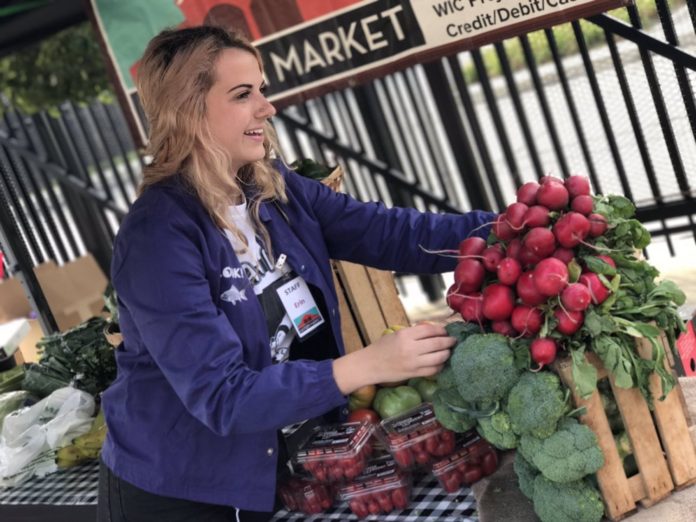A Detroit-based prescription service is not for drugs, but for fresh fruit and vegetables. Redeemable at local farmers’ markets, it puts healthy produce in the hands of the people who need it most – from low-income patients with chronic diseases, to pregnant women
“It just seems like such a no-brainer. Low-hanging fruit – if you’ll pardon the pun,” laughs Denise Pike. She is one member of a network in Detroit, Michigan, that delivers Fresh Prescription – a programme designed to boost access to fresh, locally grown fruit and vegetables.
Low-income patients, often people with chronic diseases, those who look after young children, and pregnant women, are referred to the scheme by their doctors. After being assessed, they are given prescriptions totaling between US$40 and US$80 (£29-£57), which they can ‘cash in’ at farmers’ markets or grocers for four lots of fresh produce. Alongside the ingredients, they are given advice about nutrition and choosing and storing vegetables, as well as cookery demonstrations and tastings.
Prescription dollars are loaded on to debit-style cards supported by a mobile app that tracks spending, so food vendors can be reimbursed.
Good journalism can be about good things too.
“It reinforces food as medicine, rather than just relying on pharmaceuticals,” says Pike, the development director at the Community Health and Social Services Center in south-west Detroit. “We help patients really understand the connection between what they eat and how they feel.”
Since 2013, the scheme has been giving patients fresh, locally grown produce, while benefiting small and medium-sized farmers, helping keep money within the local economy.
It links the healthcare system and the food system, a bridge that appears much-needed. Research shows that 60 million Americans struggle to put healthy food on the table. Diet has now surpassed smoking as the number one cause of death and disease in the US, prompting $1tn (£700m) to be spent there each year on diet-related illness.

In south-west Detroit, explains Brittenee Simpson, programme manager at Covenant Community Care – a non-profit community health centre – “in general the population is one of need and limited resources”. Language is a barrier…










